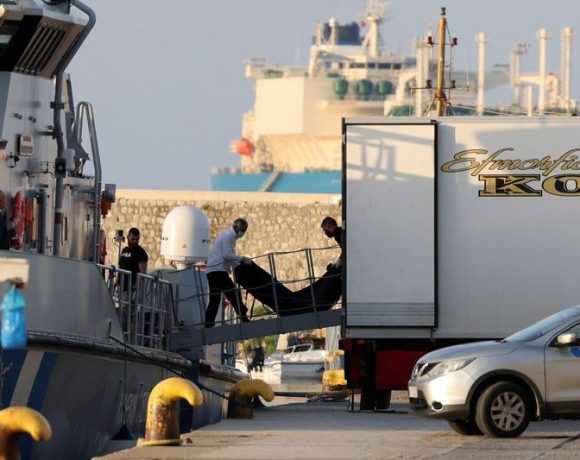
Survivors of the migrant boat tragedy off Greece’s coast accuse the Greek coastguard of causing the sinking of the overcrowded fishing vessel. The incident, which occurred on June 14, is considered one of the worst humanitarian disasters in recent Mediterranean history, with an estimated 750 people on board, mainly from Pakistan, Syria, and Egypt.
Of the total, 104 individuals survived, while 82 bodies have been recovered. The identities of the four survivors who spoke to the BBC have been verified through multiple sources, but they have chosen to remain anonymous for their safety.
The survivors, some of whom are being held at the Malakasa refugee reception center, alleged that the Greek coastguard was towing the boat when it sank in a deep area of the Mediterranean, approximately 80km (50 miles) off the Greek coast. The Greek authorities have denied these claims, stating that when they attempted to secure the vessel with a rope to assess the situation, some individuals on board resisted, expressing their desire to continue the journey to Italy.
The survivors reported being pressured by Greek officials not to speak to the media about the incident or to blame the Greek coastguard. The Greek authorities declined to comment, citing an ongoing official investigation into the sinking.
The German NGO Sea-Watch, which conducts rescue operations in the Mediterranean, commented that towing an old vessel with a large number of people under such conditions is a risky endeavor and likely to result in a disaster. The survivors also disputed the allegations against the nine Egyptians accused of people trafficking, stating that they were passengers, not smugglers.
The UN High Commission for Refugees (UNHCR) has called for urgent action to prevent further deaths at sea, emphasizing the importance of search and rescue operations and the establishment of safe regular pathways in the Mediterranean. According to UNHCR figures, approximately 80,000 people have crossed the Mediterranean to reach EU states this year, with an estimated 1,200 deaths or disappearances during the journey.
Picture Courtesy: Google/images are subject to copyright

